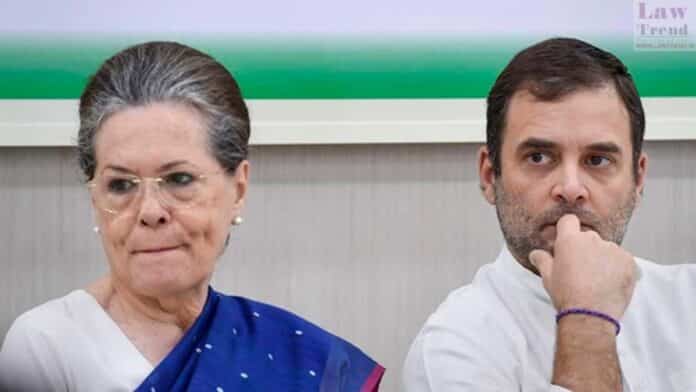A Delhi court on Friday declined the Enforcement Directorate’s (ED) request to issue notices to Congress leaders Sonia Gandhi and Rahul Gandhi in connection with an ongoing money laundering case linked to the National Herald newspaper, citing deficiencies in the chargesheet filed by the agency.
The order was passed by Special Judge Vishal Gogne, who stated that the court was not yet satisfied that issuance of notice was necessary at this stage. “There are certain documents missing in the chargesheet as highlighted by the Ahlmad (court record keeper). ED is directed to file those documents. After that the court will decide the issue of notice,” the judge said.
The central agency had urged the court to issue notices to the accused, arguing that under the Prevention of Money Laundering Act (PMLA), cognisance of the offence could not be taken without first hearing the accused persons. “Don’t want this order to be prolonged. Let notice be issued,” the ED had submitted.
However, the court insisted that procedural requirements must be met before moving forward. “The court has to look for any deficiency in the agency’s chargesheet,” it noted. The ED, in its response, maintained that it was being “very transparent” and that it “was not hiding anything” from the court. “We are giving them the opportunity to present their side before cognisance is taken,” the ED submitted.
The court, however, asked the ED to first rectify the defects in the chargesheet and produce the necessary documents. Only after this would the issue of issuance of notice be considered.
Accusations Against the Gandhis and Young Indian
The ED’s complaint names Sonia Gandhi and Rahul Gandhi as accused numbers one and two, respectively. They are also alleged to be the primary beneficiaries of Young Indian Pvt Ltd (YI), a company in which they jointly hold a 76% stake. Other named individuals include Sam Pitroda, chairman of the Congress Overseas Cell, and Suman Dubey, a former journalist associated with the Gandhi family.
According to the ED, Young Indian acquired control over Associated Journals Limited (AJL)—the publisher of the now-defunct National Herald—for a mere ₹50 lakh. The agency has alleged that AJL’s assets, valued at ₹2,000 crore at the time of acquisition and now worth around ₹5,000 crore, were effectively transferred to Young Indian.
The ED’s chargesheet further claims that it has identified proceeds of crime worth ₹988 crore. These include real estate and immovable assets worth ₹755 crore, shares worth ₹90 crore, and rent totalling ₹142 crore. The rent was reportedly earned by AJL from multiple city properties, including those located in Delhi, Mumbai, Indore, Panchkula, Lucknow, and Patna, since the takeover by Young Indian in 2010–11.




